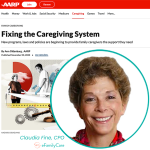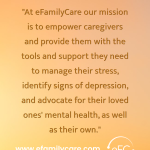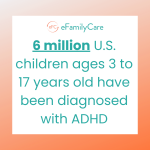
The Good News and the Bad News
Although the “good news” is that people are living longer, surviving acute illnesses such as infectious diseases, heart attacks, and even cancers, the “bad news” is that they are living many more years with complex chronic illnesses, dementia, and severe functional and impairment—relying primarily on the support of family caregivers to ensure their ongoing safety and wellbeing. These “survivors” often require considerable attention and effort from family and friends for years. Although it may be difficult to admit, the benefit of our aging loved ones longevity can become less of a benefit and more of a burden.
Caregiver Stress
No matter how strong or how committed you may be, caring for an impaired loved one can be highly stressful. Even when the caregiving task is not hands-on and doesn’t require scheduled hours, the pervasive sense of responsibility and concern for an aging loved one can feel like a full-time job.
If you feel this way, remember that you are not alone! Approximately 40 million, unpaid, untrained and unsupported family members are providing a range of caregiving tasks while simultaneously shouldering the responsibilities of other life demands–from child-rearing to employment. It is no wonder that family caregivers report a much higher level of stress than people who are not caregivers.
The Risks of Caregiver Stress
Caregiving has all the features of a chronic stress experience: It creates physical and psychological strain over extended periods of time and is accompanied by high levels of unpredictability and uncontrollability. Caregiver stress has the capacity to create secondary stress in multiple life domains such as work and family relationships. Predictably, a growing body of research suggests that family caregiving can have harmful physical mental and emotional consequences.
If you let your stress spiral on for too long, it can have damaging effects on your physical, mental, and emotional health, especially if it becomes chronic. People under chronic stress are prone to more frequent and severe viral infections, such as the flu or common cold. Ongoing stress can cause or exacerbate many serious health problems including cardiovascular disease, gastrointestinal disorders, obesity, and mental health problems.
Unfortunately, ongoing, chronic stress is difficult to recognize because the source of stress tends to be more constant than in cases of acute or traumatic stress. The body gets no clear signal or alarm. The stressor is processed as “This is just the way things are or have to be.”
Monitor your stress level
It is critical for you, however, to monitor your level of caregiver stress not only to maintain your own health and wellbeing but also to preserve yourself as a support and resource for your Aging Loved One.
Physical symptoms of chronic stress include
- Headache
- Trouble sleeping, or sleeping too much
- Back, joint, muscle pain or tension
- Gastrointestinal issues
- Loss of appetite and weight loss
- High blood pressure
- Reliance of alcohol and or drugs to deal with stress and tension
Emotional symptoms of chronic stress include
- Feeling you are under constant pressure
- Difficulty concentrating
- Feeling you can’t get things done
- Lack of motivation
- Restlessness
- Irritability and feelings of anger
- Moodiness, sadness, and depression
- Worrying, anxiety and even panic attacks
- Withdrawing from family, friends and usual activities
Get Support
If you are experiencing any of these symptoms, you should see a health care professional. Although some signs may indicate a serious medical, neurological or psychiatric issues, most likely they are a warning that you need to make a change in your daily life activities–including your caregiving responsibilities. Consider consulting an eFamilyCare personal Care Adviser about how you can decrease the stress-inducing aspects of caregiving. Just being able to share the situation can minimize feelings of isolation not to mention providing you with helpful suggestions and resources that will enable you to be a better caregiver while assuring your own wellbeing.
Sign Up For eFamilyCare
eFamilyCare is an excellent resource for caregivers who need to reduce stress and who want a little more help. eFamilyCare is a digital platform that connects family Caregivers with a personal expert Care Adviser. We empower you to be the best caregiver you can be, allowing you to make the right decisions for your loved one with confidence. Contact us today to see if eFamilyCare might be the right solution for you.







